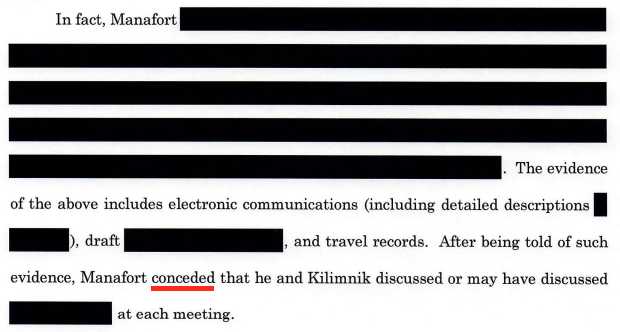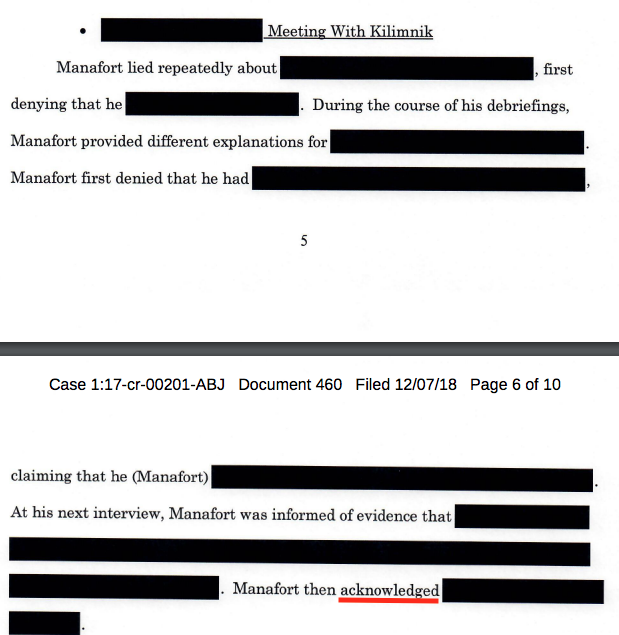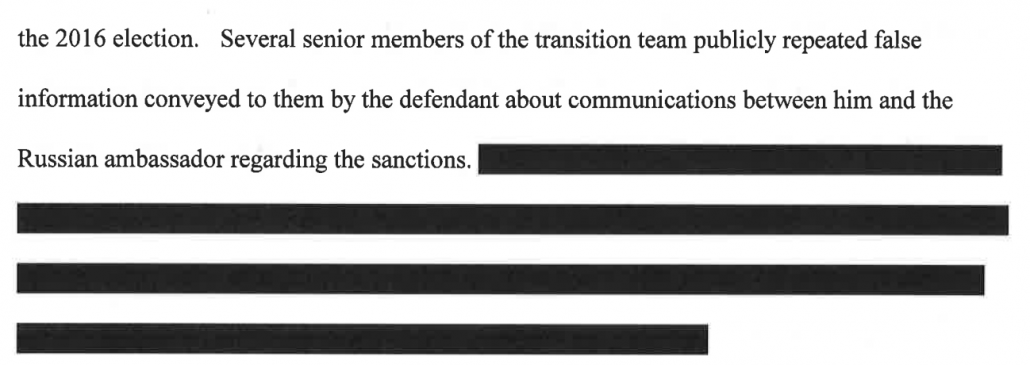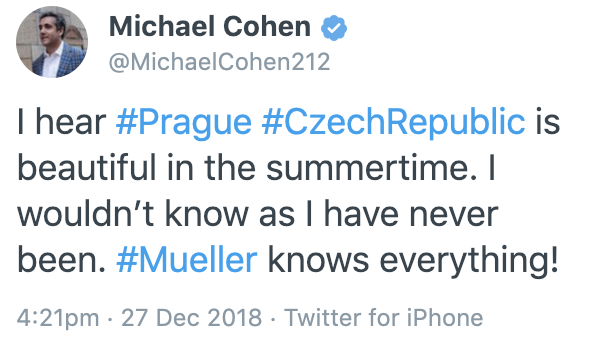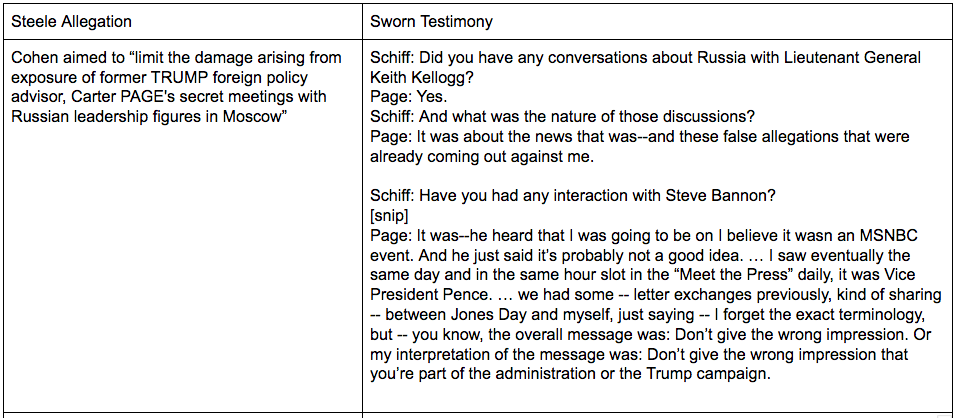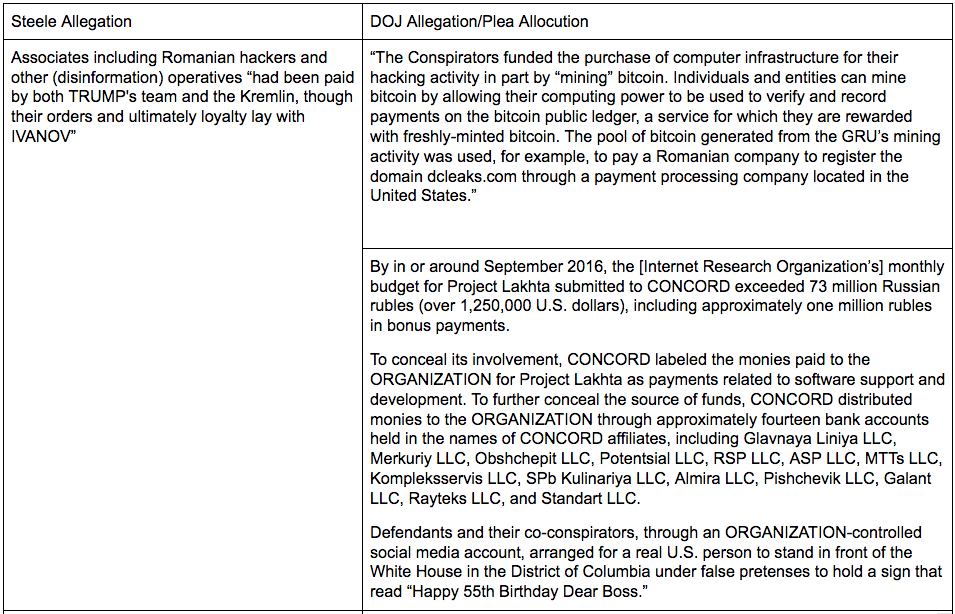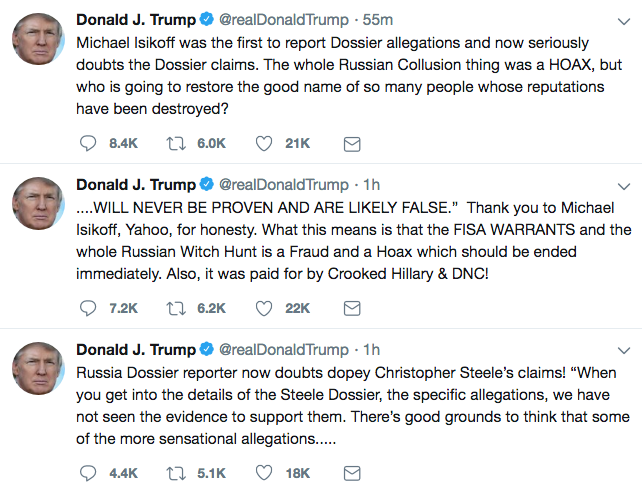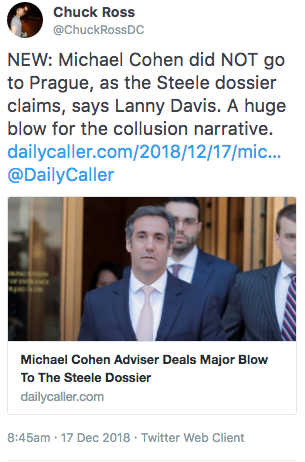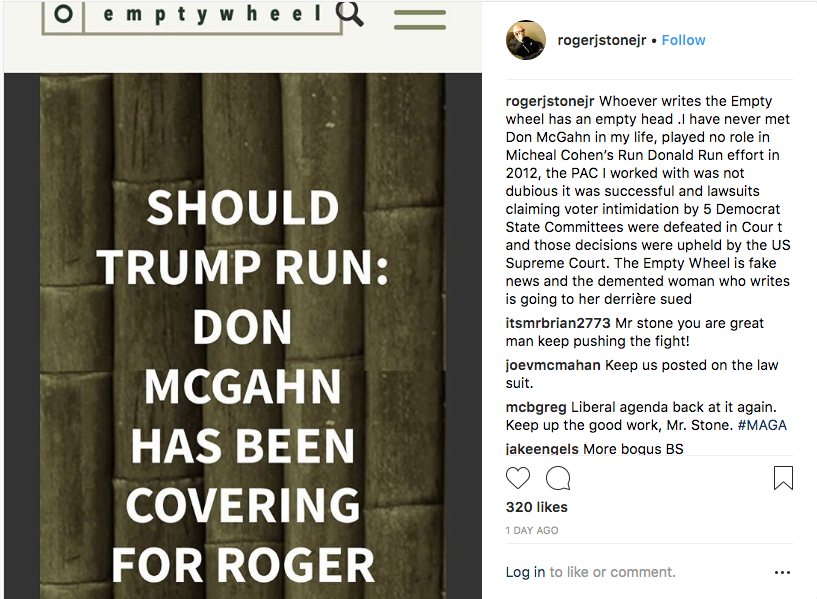I’d like to defend Judge Emmet Sullivan’s intemperate mentions of unregistered foreign agents and treason in the Mike Flynn sentencing hearing yesterday. Not only has the discussion about his comments gotten the precise language used wrong, but it fails to understand the import of Mike Flynn’s lies about being an agent of the Turkish government.
There are two comments in question. First, in part of a speech about how he would weigh the mitigating and aggravating factors in Flynn’s sentencing, Sullivan said that Flynn was “an unregistered agent of a foreign country, while serving as the National Security Advisor to the President of the United States.”
I’m going to also take into consideration the aggravating circumstances, and the aggravating circumstances are serious. Not only did you lie to the FBI, but you lied to senior officials in the Trump Transition Team and Administration. Those lies caused the then-Vice President-Elect, incoming Chief of Staff, and then-Press Secretary to lie to the American people. Moreover, you lied to the FBI about three different topics, and you made those false statements while you were serving as the National Security Advisor, the President of the United States’ most senior national security aid. I can’t minimize that.
Two months later you again made false statements in multiple documents filed pursuant to the Foreign Agents Registration Act. So, all along you were an unregistered agent of a foreign country, while serving as the National Security Advisor to the President of the United States. [my emphasis]
Then, after having gotten Flynn to finally take him up on consulting with his attorneys, but before they recessed, Sullivan sat Flynn down and asked prosecutor Brandon Van Grack if prosecutors had evaluated Flynn’s activities to see if his behavior rose to the level of “treasonous activity.” Van Grack responded by answering about the crime of treason.
COURT: All right. I really don’t know the answer to this question, but given the fact that the then-President of the United States imposed sanctions against Russia for interfering with federal elections in this country, is there an opinion about the conduct of the defendant the following days that rises to the level of treasonous activity on his part?
MR. VAN GRACK: The government did not consider — I shouldn’t say — I shouldn’t say did not consider, but in terms of the evidence that the government had at the time, that was not something that we were considering in terms of charging the defendant.
THE COURT: All right. Hypothetically, could he have been charged with treason?
MR. VAN GRACK: Your Honor, I want to be careful what I represent.
THE COURT: Sure.
MR. VAN GRACK: And not having that information in front of me and because it’s such a serious question, I’m hesitant to answer it, especially because I think it’s different than asking if he could be charged under FARA or if there were other 1001 violations, for example. [my emphasis]
Flynn went off, consulted with his lawyers, and wisely decided the last thing he should do is let Sullivan sentence him while he was thinking of treason. When he came back, the first thing Sullivan did was correct that Flynn was not acting as a foreign agent while serving as National Security Advisor and explain that he did not think Flynn had committed treason, but wanted to know what Mueller’s thinking on uncharged crimes was.
THE COURT: All right. I just want to ask a couple of questions. This is directed to either government counsel or defense counsel. I made a statement about Mr. Flynn acting as a foreign agent while serving in the White House. I may have misspoken. Does that need to be corrected?
MR. VAN GRACK: Yes, Your Honor, that would be correct, which is that the conduct ended, I believe, in mid-November 2016.
THE COURT: All right. That’s what I thought, and I felt terrible about that. I just want the record clear on that. You agree with that, Counsel?
MR. KELNER: Yes, Your Honor.
THE COURT: All right. I also asked about — and this is very important — I also asked about the Special Counsel’s Office. I also asked questions about the Special Counsel and the — and other potential offenses for the purpose of understanding the benefit, if any, that Mr. Flynn has received in the plea deal. I wasn’t suggesting he’s committed treason. I wasn’t suggesting he committed violations. I was just curious as to whether or not he could have been charged, and I gave a few examples.
[snip]
THE COURT: And I said early on, Don’t read too much into the questions I ask. But I’m not suggesting he committed treason. I just asked a legitimate question.
MR. VAN GRACK: Yes, Your Honor. And that affords us an opportunity to clarify something on our end which is, with respect to treason, I said I wanted to make sure I had the statute in front of me. The government has no reason to believe that the defendant committed treason; not just at the time, but having proffered with the defendant and spoken with him through 19 interviews, no concerns with respect to the issue of treason. [my emphasis]
Now, I will be honest with you: I was screaming at Sullivan when I read this being tweeted out in real time, in part because I spend so much time arguing that Trump and his flunkies won’t be charged with treason because we’re not at war. I do think, in an effort to convey to Flynn just how reprehensible he believes his actions were, Sullivan got out over his skis. But I think his comments are far more defensible — and telling — than much of the commentary appreciates.
Here’s why.
First, even the docket makes it clear that there are a bunch of sealed documents that Sullivan has gotten, including an ex parte version of the government’s addendum describing Flynn’s cooperation. Sullivan started the hearing yesterday emphasizing that point, then returned to it after he had gotten Flynn to plead guilty again under oath.
There’s a great deal of nonpublic information in this case, and I’ll just leave it at that.
If any of my questions require a party to disclose nonpublic information, or if I begin to discuss something nonpublic, don’t be shy in telling me. My clerks over the years have learned to do this (indicating) if I get off of script or if I get into areas where — I won’t get offended if you do it. I may not see you, so stand up and raise your hands or say something, please. I don’t want to unintentionally say something that should not be revealed on the public docket.
There’s a new document that was filed at 10:19 this morning. The government filed a sealed motion alerting the Court that it inadvertently omitted one document from the government’s in-camera production.
[snip]
Having carefully read all the materials provided to the Court in this case, including those materials reviewed under seal and in-camera, I conclude that there was and remains to be a factual basis for Mr. Flynn’s plea of guilty. [my emphasis]
By yesterday morning, Emmet Sullivan probably became one of the few people outside Mueller’s team and his DOJ supervisors that understands the activities that Trump and his associates, including Flynn, engaged in from 2015 to 2017. He understands not just the significance of Flynn’s lies, but also how those lies tied to graft and conspiracy with foreign countries — countries including, but not limited to, Russia.
It should gravely worry the Trump people that Sullivan’s comments about whether Flynn’s behavior was treasonous came from someone who just read about what the Mueller investigation has discovered.
Now consider that, as part of his effort to understand how much benefit Flynn got from pleading guilty to one charge of false statements for his multiple lies, Sullivan and Van Grack had this exchange.
MR. VAN GRACK: [W]e’d like to bring to the Court’s attention that we just had an indictment unsealed in the Eastern District of Virginia charging Bijan Rafiekian and Ekim Alptekin with various violations, and the defendant provided substantial assistance to the attorneys in the Eastern District of Virginia in obtaining that charging document.
THE COURT: All right. Could the defendant have been indicted in that indictment? Could he have been charged in that indictment?
MR. VAN GRACK: And, Your Honor, the answer is yes, and the reason for that is that in the Statement of Offense in this case, the defendant refers to false statements in that FARA filing that are part of the indictment filed in the Eastern District of Virginia.
[snip]
THE COURT: And that would have been — what’s the exposure in that indictment if someone is found guilty?
MR. VAN GRACK: Your Honor, I believe, if you’ll give me a moment, I believe it was a conspiracy, 18 U.S.C. 371, which I believe is a five-year offense. It was a violation of 18 U.S.C. 951, which is either a five- or ten-year offense, and false statements — under those false statements, now that I think about it, Your Honor, pertain to Ekim Alptekin, and I don’t believe the defendant had exposure to the false statements of that individual.
THE COURT: Could the sentences have been run consecutive to one another?
MR. VAN GRACK: I believe so.
THE COURT: So the exposure would have been grave, then, would have been — it would have been — exposure to Mr. Flynn would have been significant had he been indicted? [my emphasis]
Van Grack not only says that Flynn could have been charged in that conspiracy to act as an unregistered foreign agent indictment, but that the lies he told were part of the indictment.
And in fact, this language in Flynn’s statement of the offense (which Sullivan read yesterday in court):
On March 7, 2017, FLYNN filed multiple documents with the Department of Justice pursuant to the Foreign Agents Registration Act (“FARA”) pertaining to a project performed by him and his company, the Flynn Intel Group, Inc. (“FIG”), for the principal benefit of the Republic of Turkey (“Turkey project”). In the FARA filings, FLYNN made materially false statements and omissions, including by falsely stating that (a) FIG did not know whether or the extent to which the Republic of Turkey was involved in the Turkey project, (b) the Turkey project was focused on improving U.S. business organizations’ confidence regarding doing business in Turkey, and (c) an op-ed by FLYNN published in The Hill on November 8, 2016, was written at his own initiative; and by omitting that officials from the Republic of Turkey provided supervision and direction over the Turkey project.
Became this language in the Bijan Kian and Ekim Alptekin indictment:
From approximately January 2017 through approximately March 2017, outside attorneys for Company A gathered information to determine whether Company A or any of its employees had an obligation to register under FARA based upon Company A’s work on “Operation Confidence.” During this process, RAFIEK.IAN and ALPTEKIN knowingly provided false information to Company A’s attorneys in an effort to hide from the attorneys – and ultimately from the FARA Unit – the involvement of Turkish government officials in the project.
Among other things, RAFIEKIAN falsely told Company A’s attorneys that:
a. The meeting on or about September 19, 2016 in New York City had nothing to do with Project Confidence, and instead was in furtherance of an abandoned “Project Truth” that was distinct from Project Confidence;
b. There were no other contacts with Turkish government officials regarding the project;
c. The op-ed was Person A’s own idea, and he wrote it on his own behalf, and unrelated to the project;
[snip]
Attorneys for Company A also solicited information from ALPTEKIN for use in the FARA filings. Through his own attorneys, ALPTEKIN falsely told Company A’s attorneys that:
a. ALPTEKIN had not been consulted on the op-ed, and that he would have opposed it if he had been consulted;
[snip]
On or about March 7, 2017, RAFIEKIAN and ALPTEKIN caused to be made the following false statements of material fact in documents filed with and furnished to the Attorney General under the provisions of FARA, and omitted the following material facts necessary to make the statements therein not misleading. RAFIEKIAN reviewed the filings and provided comments to Company A’s attorneys before the filings were submitted, but did not request that any of these false statements be changed.
[snip]
Exhibit A to Company A’s FARA Registration Statement falsely stated that “[Company A] does not know whether or the extent to which the Republic of Turkey was involved with its retention by [Company B] for the three-month project.”
[snip]
Paragraph 13: “In addition to the above described activities, if any, have you engaged in activity on your own behalf which b~nefits your foreign principal?”
Response: “Because of its expertise, [Company A J -officials write, speak, and give interviews relating to national security. Although not undertaken at the direction or control of a foreign principal, it is possible that such activities may have an indirect benefit to a principal. On his own initiative, [Person A J published an op-ed in The Hill on November 8, 2016, that related to the same subject matters as [Company A] work for [Company BJ. Neither [Company BJ, nor any other person requested or directed publication of the op-ed.”
The Attachment to Company A’s FARA Supplemental Statement falsely stated that “[Company A] understood the engagement to be focused on improving U.S. business organizations’ confidence regarding doing business in Turkey, particularly with respect to the stability of Turkey and its suitability as a venue for investment and commercial activity.”
While there are other false statements alleged (presumably the ones Van Grack said Flynn was not implicated in), the EDVA indictment actually charges four counts of false statements, and one of those directly maps to the lie Flynn himself pled guilty to.
Side note: it’s worth mentioning that Rob Kelner — who is still Flynn’s lawyer — is the guy who submitted those false FARA statements, which means he may be the lawyer that will take the stand in the EDVA trial to attest to the lies on those forms. It’s Kelner who still has some cooperation with prosecutors to do, at least as much as Flynn.
Significantly, as I noted the other day, both the conspiracy and the foreign agents charges in the EDVA indictment say the conduct continued through March 2017, the date Flynn Intelligence Group filed false FARA filings, hiding the fact that they knew Turkey was behind the Fethullah Gulen project.
COUNT ONE Conspiracy – 18 U.S. C. § 3 71 THE GRAND JURY FURTHER CHARGES THAT: 1. The allegations contained in the General Allegations of this Indictment are incorporated here by reference. 2. From at least July 2016, through at least March 2017, in the Eastern District of Virginia and elsewhere, the defendants,
[snip]
COUNT TWO Acting as an Unregistered Agent of a Foreign Government – 18 U.S. C. § 9 51 THE GRAND JURY FURTHER CHARGES THAT: 1. The allegations contained in the General Allegations of this Indictment are incorporated here by reference. 2. From approximately July 2016 through approximately March 2017, in the Eastern District of Virginia and elsewhere, the defendants, [my emphasis]
There’s a reason it gets charged that way, which is even more important for Flynn than for his co-conspirators (a reason that also played out in Paul Manafort’s case, in which he was charged for hiding his ties to Ukraine at a time when they would have impacted the Trump campaign).
The point of these registration crimes is that so long as you withhold full disclosure about your actions, you continue to lie to the federal government and the public about the significance of your actions. By filing a registration in March 2017 specifically denying what all the co-conspirators knew — that Flynn Intelligence Group was actually working for Turkey, not Ekim Alptekin’s cut-out Inovo — it prevented the public and the government from assessing the import of Flynn’s actions in trying to force DOJ to deem Gulen a terrorist who could be extradited to Turkey. And frankly, so long as Flynn continued to hide that detail, it made him susceptible to pressure if not blackmail from Turkey.
There’s a grammatical difference between Sullivan’s two comments. He first said that Flynn was “an unregistered agent of a foreign country, while serving as the National Security Advisor.” That was, technically, true. For the entirety of the time Flynn served as National Security Advisor, FIG had not admitted that it had actually been working directly for Turkey. Indeed, FIG continued to lie (and so remained unregistered) about that fact until December 1, 2017, when Flynn pled guilty.
As I’ll show in a follow-up post, it is critically important that Flynn continued to lie about whether he had been working directly for Turkey when he met with the FBI on January 24, 2017.
Sullivan’s follow-up used different grammar. Then, he said “Flynn [was not] acting as a foreign agent while serving in the White House.” That is also true. He was no longer secretly being paid by the government of Turkey to do things like slap his name on op-eds written by other people.
Still, even though he was no longer being paid to take specific actions requested by the government of Turkey, for the entire time he worked at the White House (and for more than eight months afterwards), his past work as an agent of a foreign government — as opposed to a foreign company cut-out — remained unregistered, undisclosed to the public.
With that in mind, I want to return to the specific exchange that Sullivan had. In response to his question about whether Flynn’s behavior amounted not to treason, but to treasonous activity, Van Grack at first says they did not consider treason, but then corrected himself.
COURT: All right. I really don’t know the answer to this question, but given the fact that the then-President of the United States imposed sanctions against Russia for interfering with federal elections in this country, is there an opinion about the conduct of the defendant the following days that rises to the level of treasonous activity on his part?
MR. VAN GRACK: The government did not consider — I shouldn’t say — I shouldn’t say did not consider, but in terms of the evidence that the government had at the time, that was not something that we were considering in terms of charging the defendant. [my emphasis]
All of this seems to be consistent with Mueller reviewing Flynn’s actions, reviewing statute, finding that Flynn’s behavior did rise to the standards described in 18 USC 951 (with which Van Grack said he could have been charged), but did not rise to treason (as it clearly did not). Van Grack explained that “in terms of other offenses, they were not sort of in consideration in our interfacing with the defendant,” which seems to admit that Flynn could have been charged with other crimes, but was not, because he cooperated.
This walkback, I’m convinced, is as much for the benefit of the prosecutors, who gave Flynn an unbelievable sweetheart deal, as it was for the sake of judicial restraint. Mueller is forgiving Flynn working in the White House while continuing to hide that he had, during the campaign, secretly and knowingly worked for a foreign government, in consideration of his cooperation unveiling other activities.
But legal standards aside, Sullivan — one of the only people who has read a summary of what Flynn provided in his cooperation — still could not hide his disgust about the conduct he knows far more about than we do.
This crime is very serious. As I stated, it involves false statements to the Federal Bureau of Investigation agents on the premises of the White House, in the White House in the West Wing by a high ranking security officer with, up to that point, had an unblemished career of service to his country. That’s a very serious offense.
You know, I’m going to take into consideration the 33 years of military service and sacrifice, and I’m going to take into consideration the substantial assistance of several ongoing — several ongoing investigations, but I’m going to also take into consideration the aggravating circumstances, and the aggravating circumstances are serious. Not only did you lie to the FBI, but you lied to senior officials in the Trump Transition Team and Administration. Those lies caused the then-Vice President-Elect, incoming Chief of Staff, and then-Press Secretary to lie to the American people. Moreover, you lied to the FBI about three different topics, and you made those false statements while you were serving as the National Security Advisor, the President of the United States’ most senior national security aid. I can’t minimize that.
Two months later you again made false statements in multiple documents filed pursuant to the Foreign Agents Registration Act. So, all along you were an unregistered agent of a foreign country, while serving as the National Security Advisor to the President of the United States.
I mean, arguably, that undermines everything this flag over here stands for (indicating). Arguably, you sold your country out. The Court’s going to consider all of that. I cannot assure you that if you proceed today you will not receive a sentence of incarceration. But I have to also tell you that at some point, if and when the government says you’ve concluded with your cooperation, you could be incarcerated.
It could be that any sentence of incarceration imposed after your further cooperation is completed would be for less time than a sentence may be today. I can’t make any guarantees, but I’m not hiding my disgust, my disdain for this criminal offense. [my emphasis]
I remain frustrated that Sullivan raised treason at all yesterday, as I spend a great deal of time tamping down discussion of treason; none of the Trump flunkies’ actions that have been thus far revealed reach treason.
But I think I’m beginning to understand what a big deal it was for Flynn to continue to lie about his service for Turkey, even aside from the disgust I share with Sullivan that anyone would engage in such sleazy influence peddling while serving as a key foreign policy advisor for a guy running for President.
Flynn did a lot of really sleazy things. There was no discussion yesterday, for example, about how he gleefully worked on cashing in with nuclear deals even while Trump was being inaugurated. The public lacks both a full accounting of his sleazy actions and full understanding of their import for national security.
Mueller’s team thinks Flynn’s cooperation has been so valuable that it should wipe away most punishment for those sleazy actions. Emmet Sullivan, having read a great deal of secret information, is not so sure.
As I disclosed in July, I provided information to the FBI on issues related to the Mueller investigation, so I’m going to include disclosure statements on Mueller investigation posts from here on out. I will include the disclosure whether or not the stuff I shared with the FBI pertains to the subject of the post.


